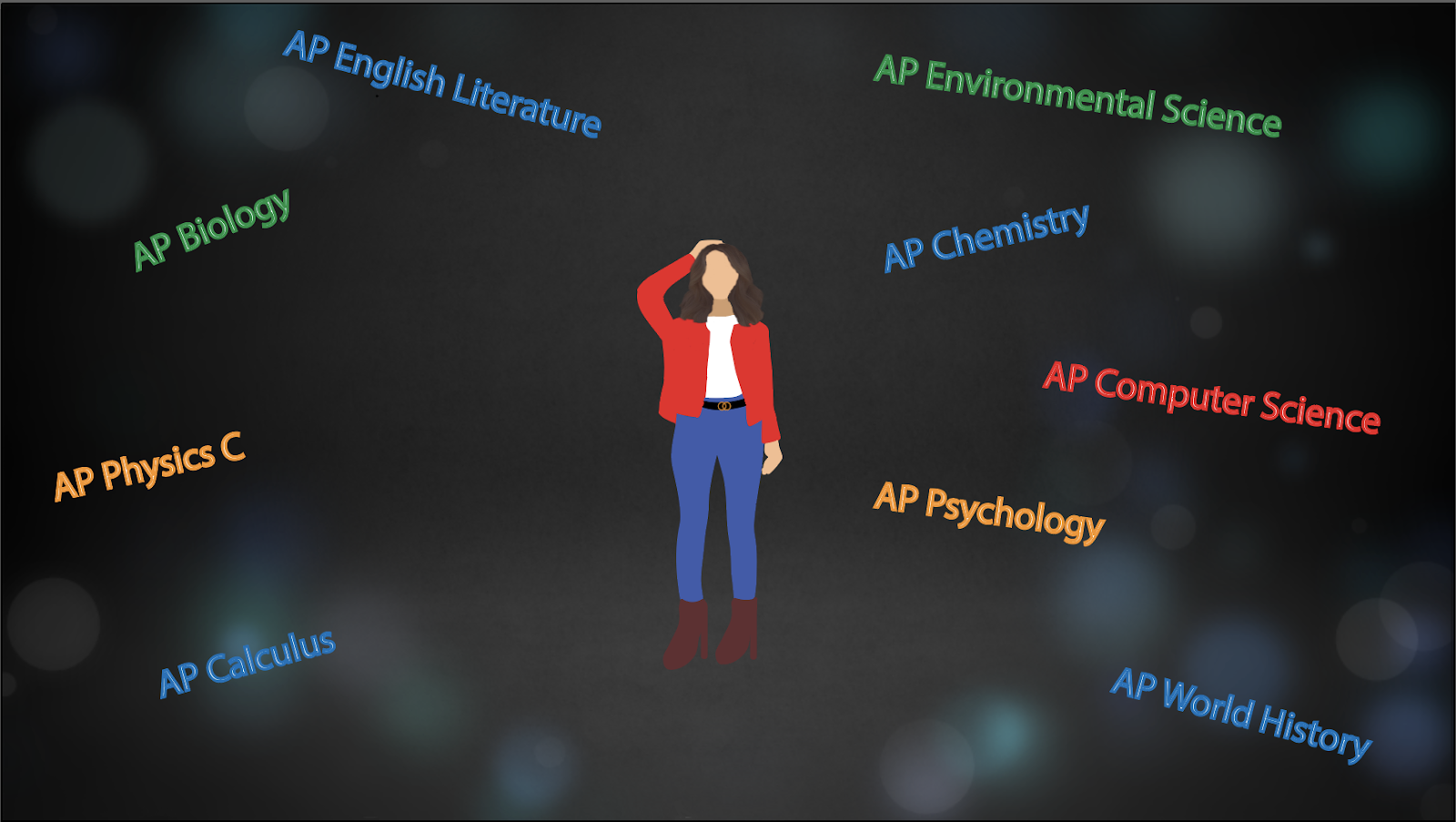These days, whenever I go to bed and close my eyes, I don’t see any dreams of me being on a sunny beach with my hair flying in the warm breeze. Instead, I see all of the work I have due the next day from my AP classes and all of the tests that are, quite menacingly, creeping up on me. It seems like after just a few short hours, the sun has risen and the homework torment has once again begun. I suspect that this is the story of millions of students in America who take AP classes.
In the midst of this pandemic, volunteering, preparing for the SAT, doing extracurricular activities, and maintaining our GPAs have become even more difficult. On top of that, AP classes, or “Additional Pressure” classes as I like to call them, only add to the immense workload that students are already carrying. Although many high schoolers do participate in Advanced Placement classes, not many are aware of its origin. As stressful as the classes are at times, they definitely weren’t created because of an educational decree by someone like Dolores Umbridge.
History
It all began in the 1950s when government leaders began to show concern for whether American students were getting an adequate education or not. In the midst of the Cold War, government leaders began to realize that having students with a strong education was an essential factor in the success of the United States over the Soviet Union. They feared that without rigorous education, the United States would fall behind other countries. This fear only deepened after the Soviet Union launched the first satellite known as Sputnik 1 during the space race against the United States. This loss against the Soviet Union had a profound impact on the American government. For instance, this led to the creation of the Fund for the Advancement of Education (TFAE) by the Ford Foundation in 1951. According to the Rockefeller Archive Center, this fund was established in order to provide support to both “new and experimental programs at all levels of formal education.” Through the funds the TFAE contributed, the data collected proved that the education system was not sufficient for intelligent and high-achieving students. This was primarily because many students would be taught the same coursework in their introductory college classes. This caused students to feel as if they were not using their full potential and were wasting their time in an environment where they experienced no growth. As a result, the Advanced Placement (AP) program was introduced by the College Board and led to the growth of standardized assessments, Pre-AP classes in middle school, and better training for teachers. It is definitely interesting to see that, when looking at the big picture, the launch of Sputnik 1 was what led to the eventual creation of AP classes.
Students Perspective
As students in high school, we often deem AP classes as an “additional pressure” due to the immense workload and challenging exams. However, there are also countless benefits in taking AP classes. Most prominently, AP classes prepare us for our college years. Without such rigorous classes, we would be slammed with reality in college and the coursework would seem infinitely more difficult. It would be as if we were untrained soldiers going onto the battlefield to fight a vastly more experienced opponent.
A key factor during course selection is to align the AP classes you take with your interests. For instance, during the beginning of my freshmen year, many people suggested that I take AP Government. However, when I took it, I never gained much interest in that class and it felt as if it was an additional pressure. On the other hand, classes such as AP Environmental Science and AP Computer Science Principles are courses that I truly enjoy. These have almost never felt like they are a pressure for me. Instead, they have been classes that I really look forward to going to everyday. When choosing AP classes, it is very important to remember that quantity isn’t everything. It may be better to take fewer AP classes that you are interested in (and that you will do better in) than taking many AP classes that you do not enjoy (especially if they would negatively affect your grade). When creating your course schedule, always make sure that you find a good balance between course rigor and your interests.
Tips
Stay focused while studying and don’t procrastinate!
Don’t be afraid to ask your teacher questions about the course material.
Make sure to review everything you learned throughout the year and take practice exams to know what the real exam will be like.
Eat a healthy breakfast and get a good night’s sleep before the exam!
Resources
If you still have a few days left before your AP exams be sure to check out these resources for studying! Good luck and finish strong!
– College Board Resources (Daily Videos)
– Practice AP Exams
– Exam Prep Textbooks
– Review Class Notes and Assignments
For more information about AP Exams go on the College Board website!




